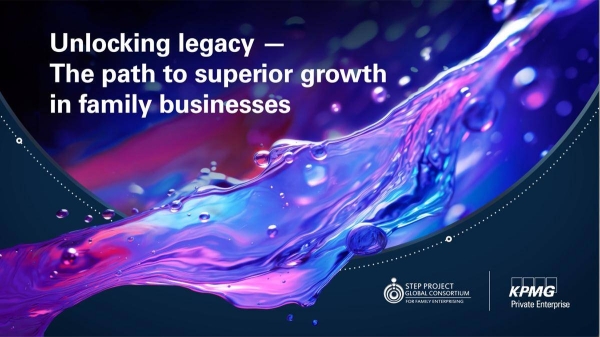The Global Family Business report from KPMG Private Enterprise and the STEP Project Global Consortium highlights how successful business families are adopting a future-centric view of legacy, balancing tradition with innovation. The report features insights from top family business leaders and data from 2,683 family businesses across 80 countries, including Saudi Arabia. In Saudi Arabia, 78 percent of respondents reported a strong incorporation of legacy into their family business, leading to high sustainability scores and strong business performance.
The report emphasizes that legacy alone is not enough to ensure long-term success in family businesses. Transgenerational entrepreneurship plays a key role in sustained performance, with younger generations often driving innovation and bridging generational divides. It is important for family businesses to embrace their legacy, share it with the family and executive team, and allow subsequent generations the freedom to create their own legacy.
Fuad Chapra, from KPMG in Saudi Arabia, highlights the importance of understanding generational perspectives and priorities when it comes to legacy. Younger generations may prioritize social and entrepreneurial legacies, while older generations may focus more on material legacies and the family bloodline. The report encourages founders to establish the ‘beat’ for subsequent generations to follow, considering the evolving dynamics of the business and broader society.
The report takes a ‘future-centric’ perspective on legacy, where tradition and innovation coexist and change is embraced to ensure resilience, competitiveness, and relevance. Legacy is seen as a crucial building block for the future, contributing to business performance, sustainability, and social impact. ‘Social legacy’ emerges as a strong component of legacy, prompting family businesses to focus on sustained performance and dynamic legacies to optimize outcomes.
While regional similarities exist, data points vary across regions due to the influence of transgenerational entrepreneurship. The study suggests that dynamic legacies are necessary to maximize business outcomes, as legacy alone may not suffice. Family businesses are encouraged to harness their natural instincts for generating sustained performance and developing dynamic legacies to stay competitive and relevant in the ever-changing business landscape.











